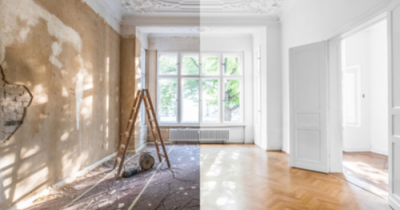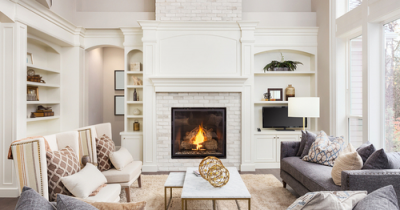When it comes to buying a home, it can be a scary prospect. This is likely to be the biggest purchase you will ever make. When it comes to mortgages, it can be easy to get confused by the variety and complexity of some that are on offer. So let us le
There’s nothing like living in a home where everything seems to suggest you’re comfortable and happy. However, when your furniture begins to talk to you and a quick look at a magazine or a friend’s home makes you dread your home and
Spending time with friends and acquaintances is great but it's also one of the easiest ways to spend a lot of money without even noticing it. From drinks, show tickets and dinners, to taxis and late-night takeaways it’s very easy to overspe
Moving is hard and time-consuming at the best of times. It’s even harder and more complicated for single parents who have more than themselves to think about. You don’t have another mind or set of hands to help you choose between renting
When it comes to the build-up of buying a house, without a choice, you have to spend a drastic amount of money from your deposit fee, valuation fee, stamp duty and the list goes on. Feel like you are short on money to decorate your new home? Don&rsqu
There has always been a great debate over whether renters or owners are happier. Many years ago, buying a house was part of growing up. You were not accomplished until you had a property in your name, and the only people who rented were the ones who
Improve your home life during summer months and ensure any viewers or visitors stay comfortable. Britain has had better weather than the Mediterranean, Hawaii and The Bahamas so far this summer, and with the majority of homes not
Buying an empty house that needs a bit of renovation and restoration can be very exciting. You are presented with a blank canvas that allows you to change anything you like and design the house of your dreams from scratch. Taking on a pr
When you’re in the throes of purchasing a new house and have what you think is the home of your dreams, it is important not to get carried away – a home is the most important purchase you may ever make and so it’s worth ensuring wha
According to the latest research from Post Office Money, landscaping your garden could add more value to your home than a new kitchen, conservatory, extension or loft conversion.
We often have clients ask us how long it will take them to move into a new home. In a perfect world, an offer would be accepted and you would be unpacking boxes six weeks later. However, this isn’t a perfect world and there are many factors tha
If you are thinking of updating the look of your home and would like to add a touch of luxury without a complete renovation, there are a few tricks that can help you achieve the desired result. Dress your walls A wall covere











